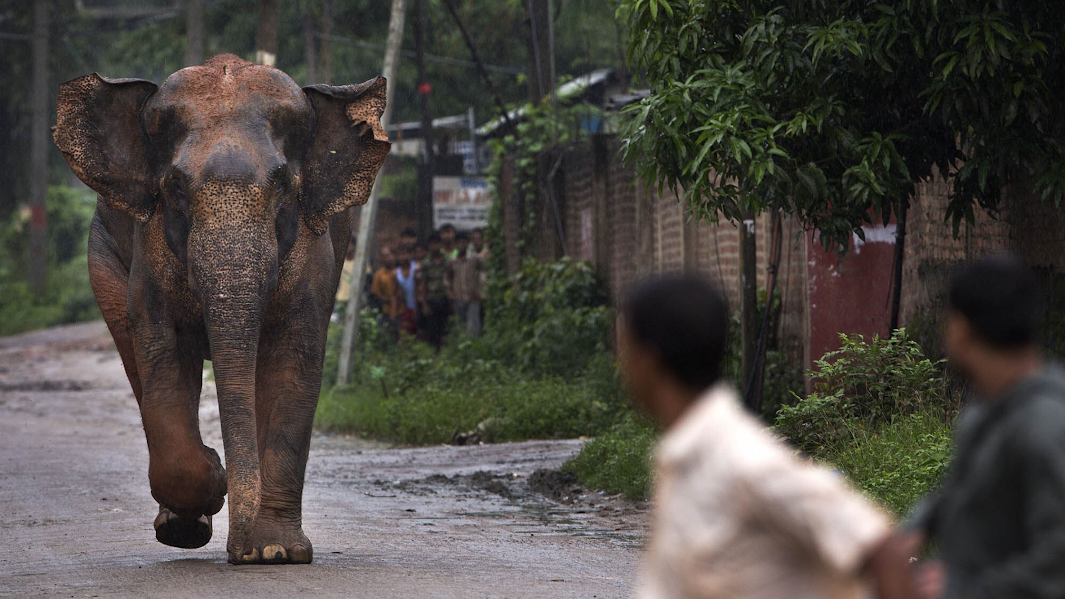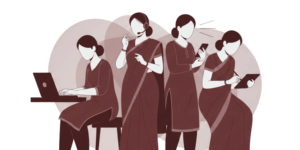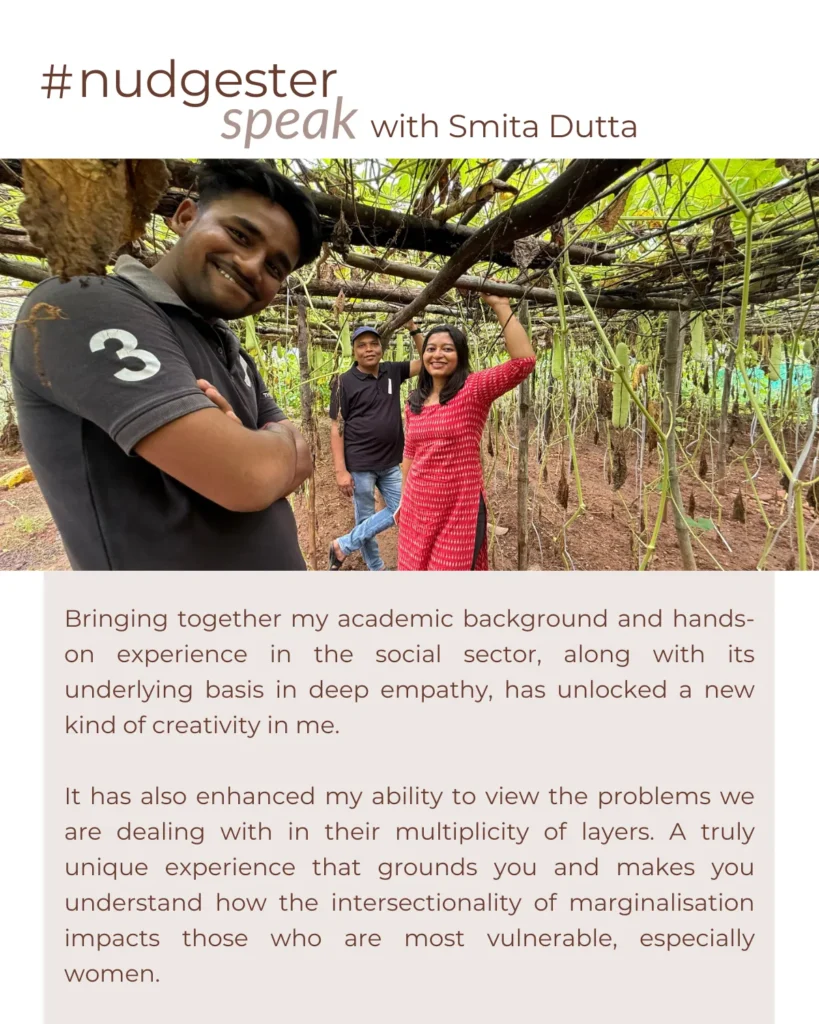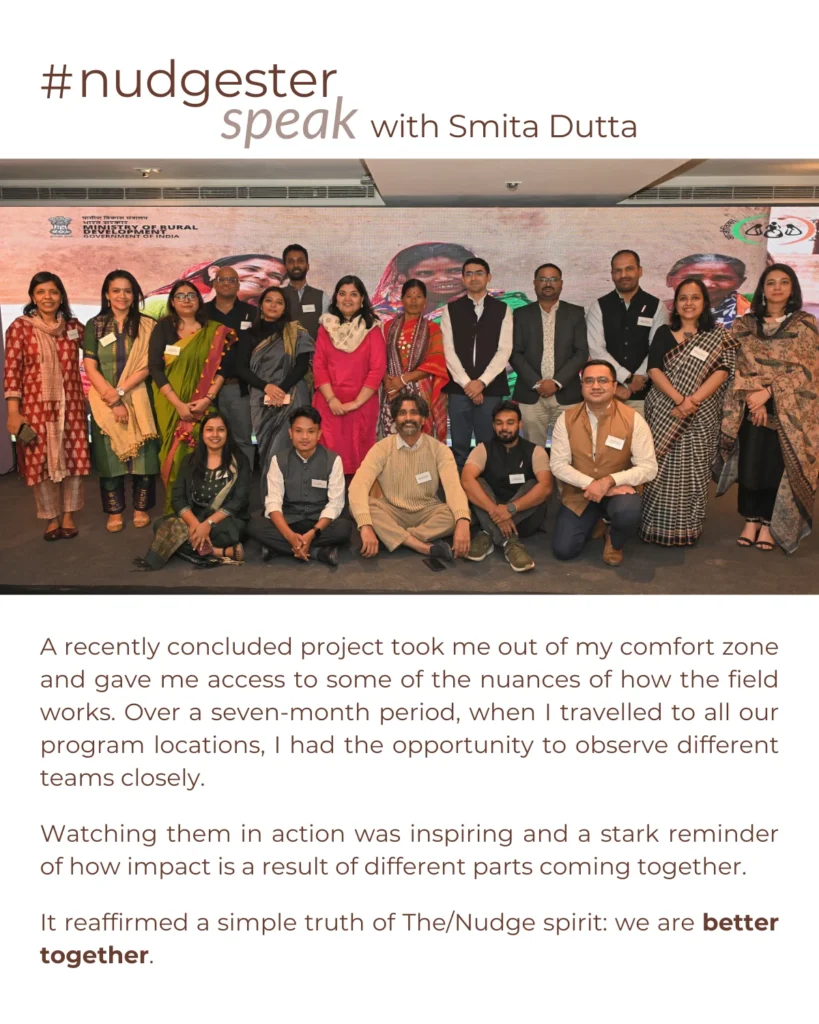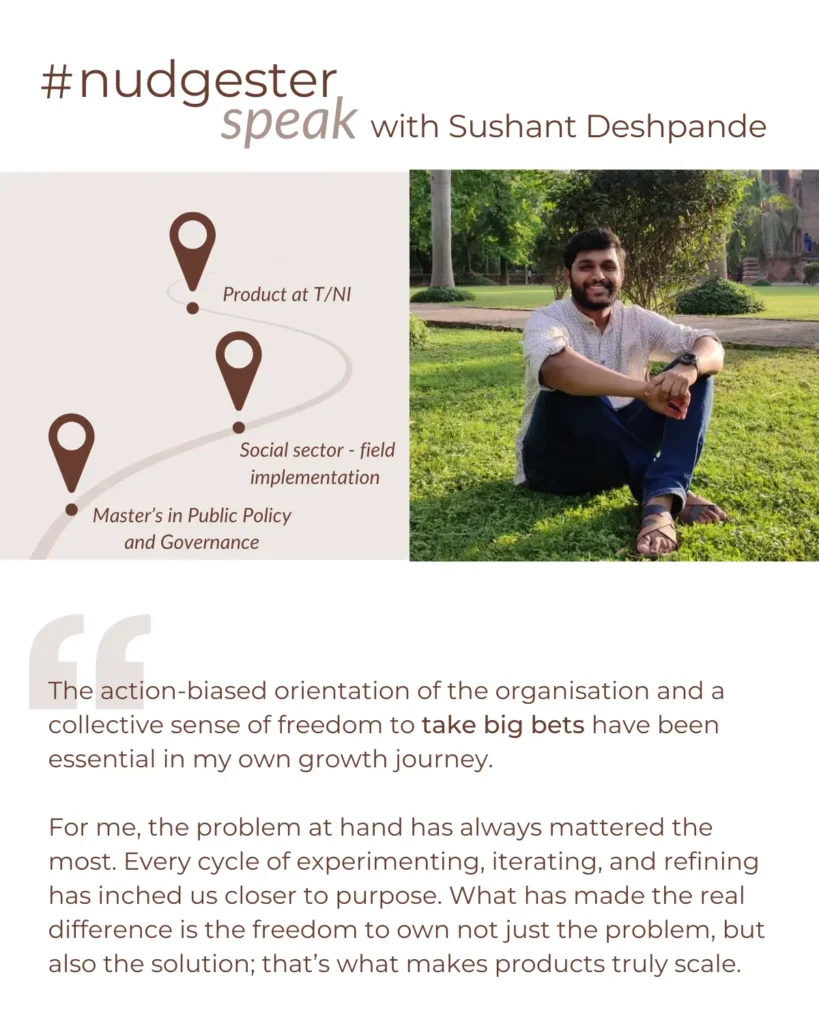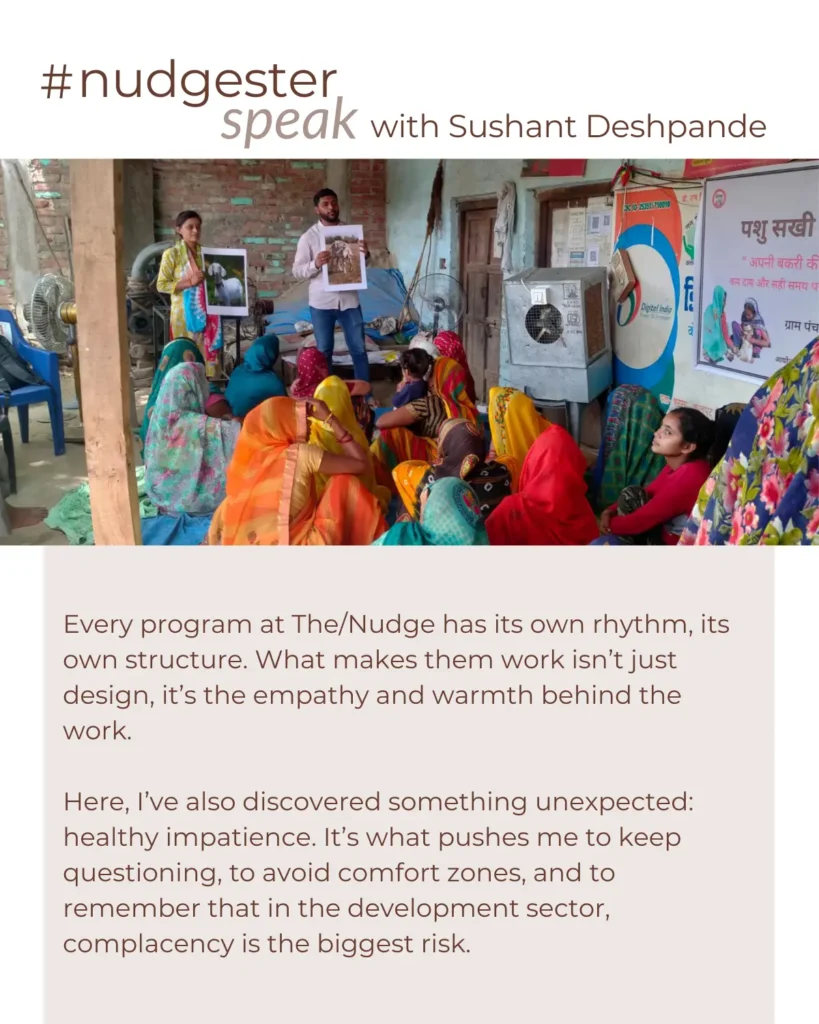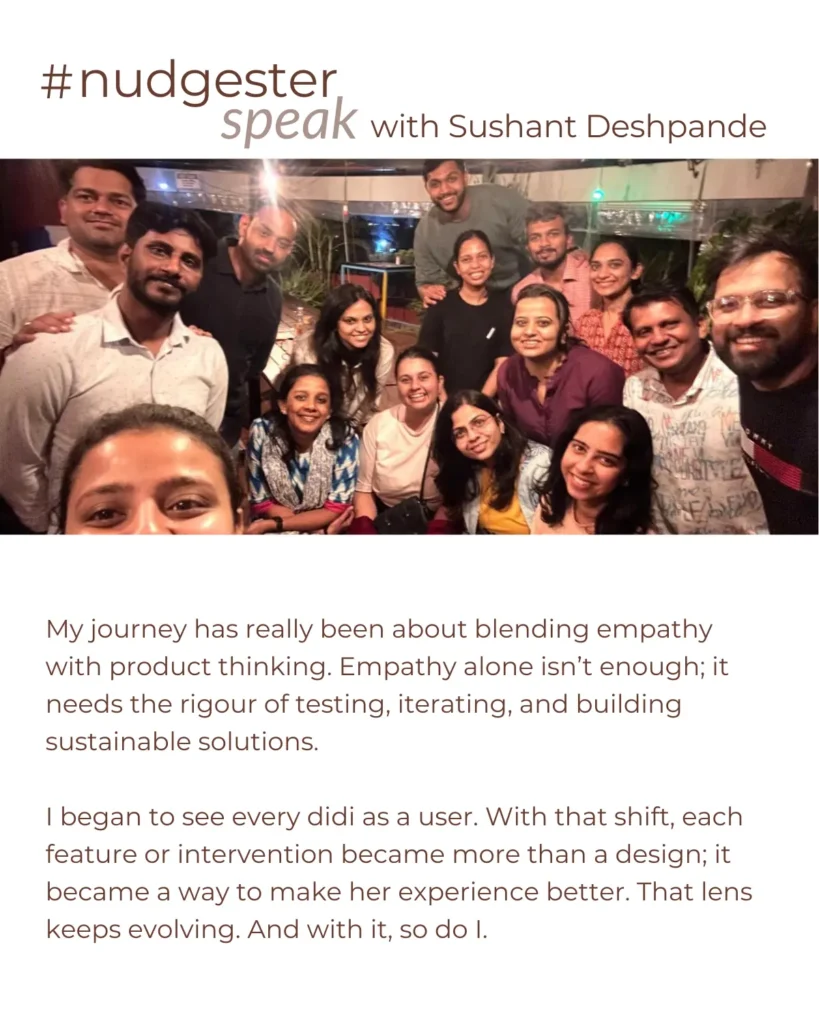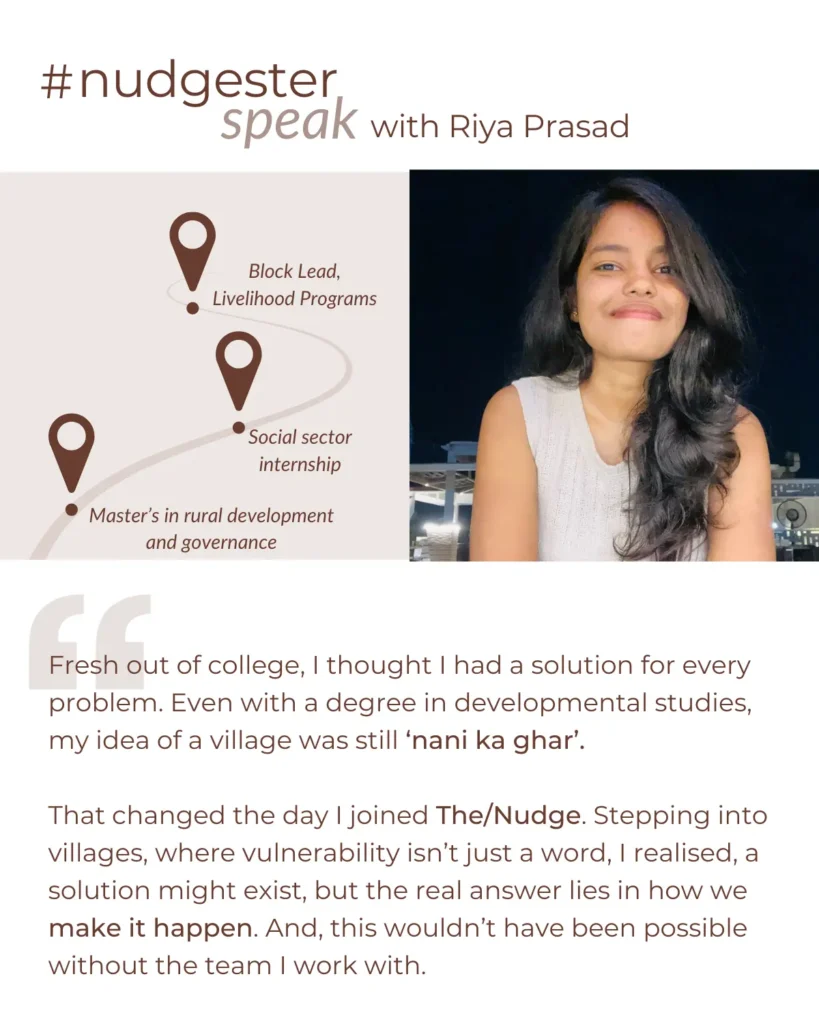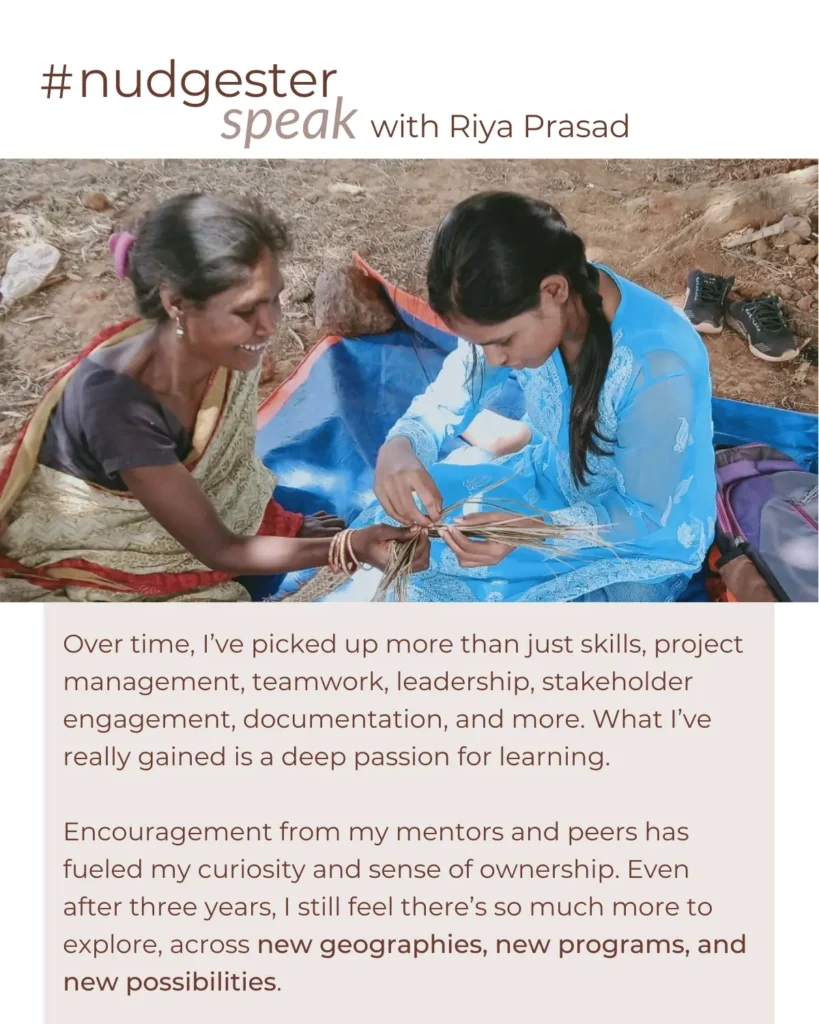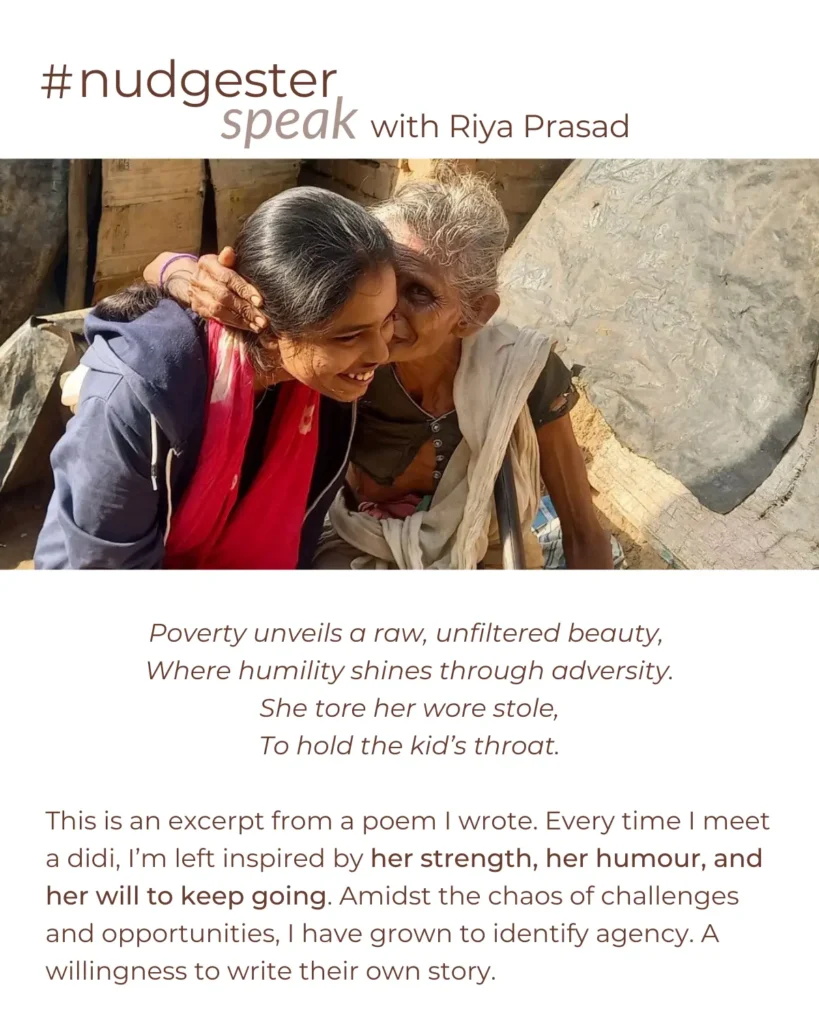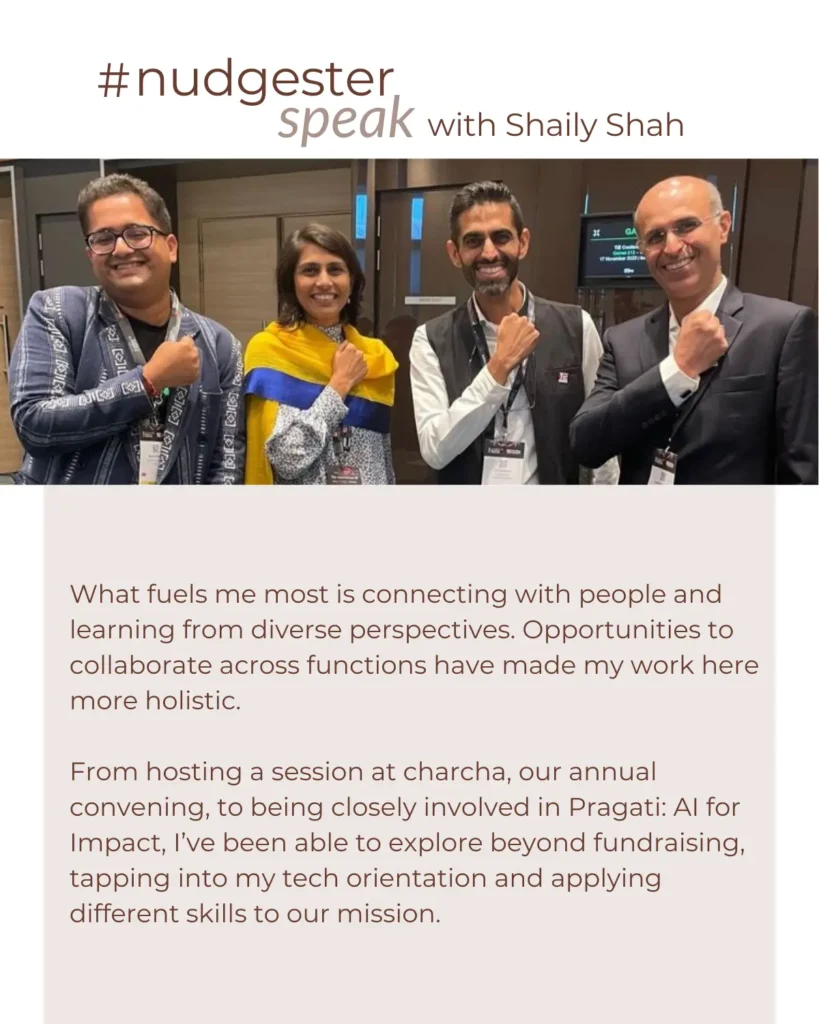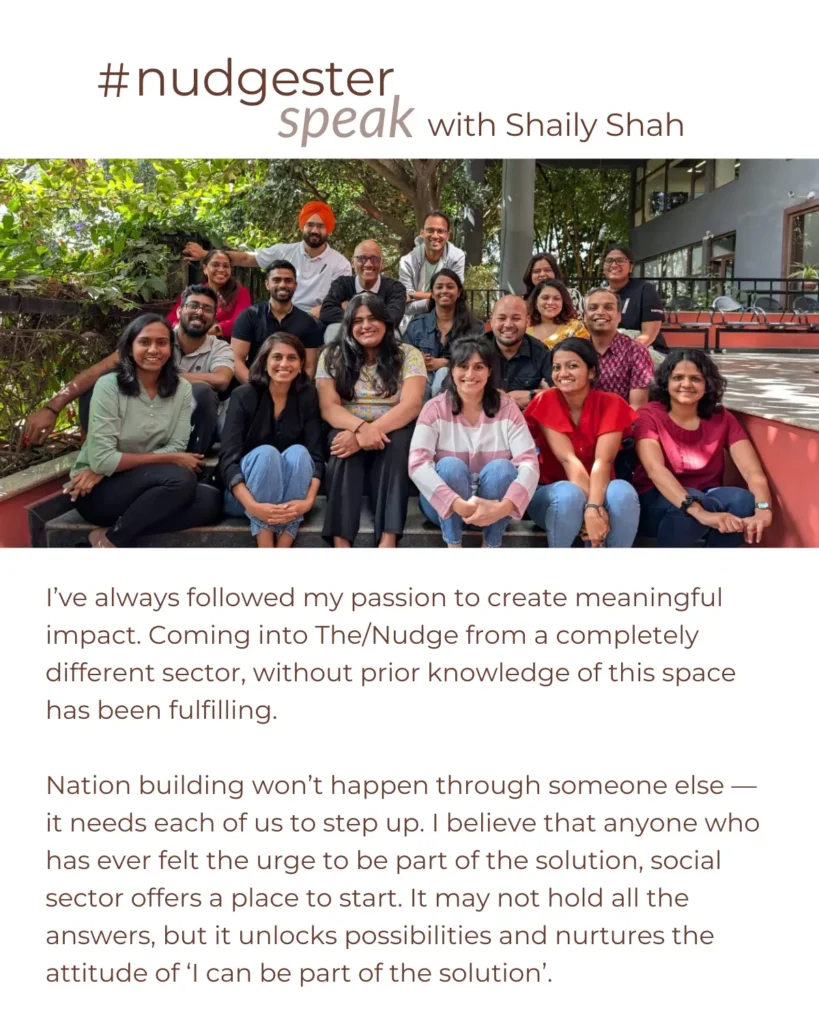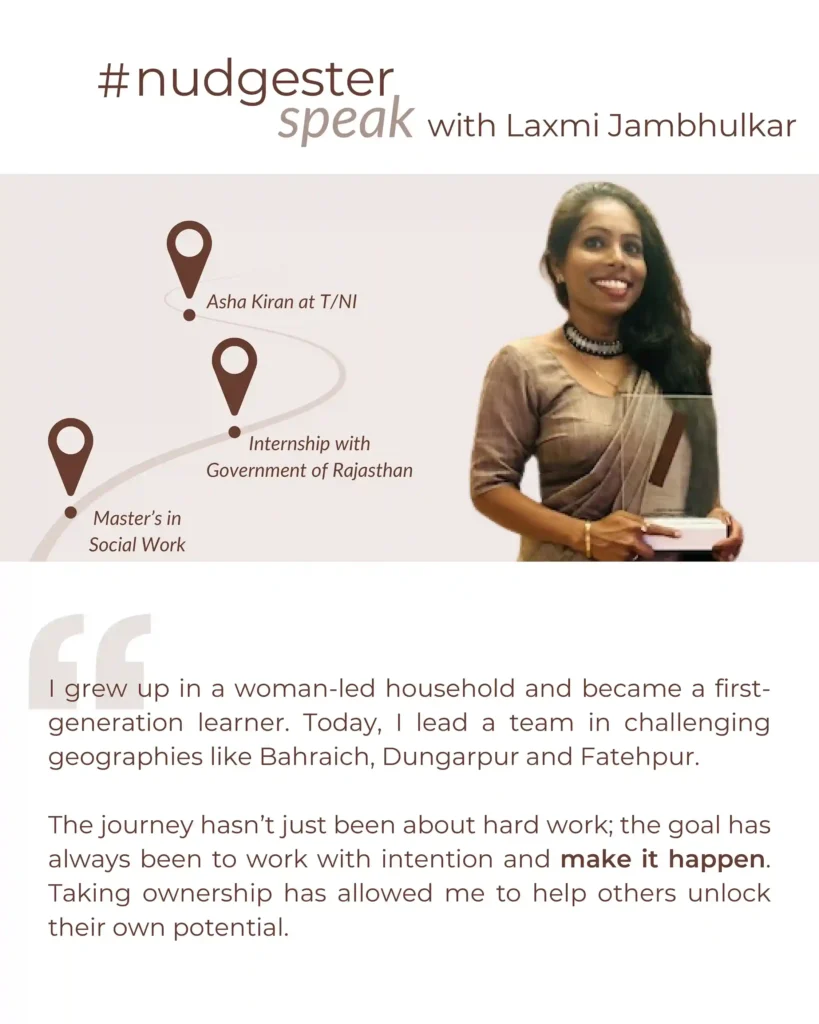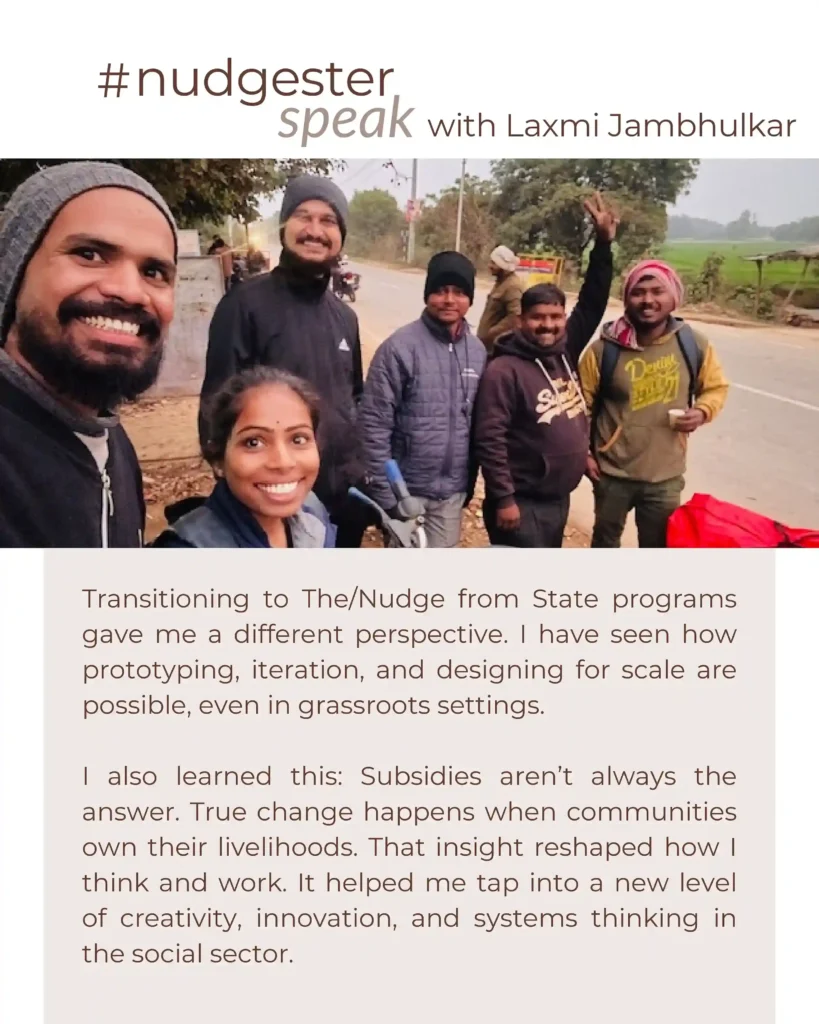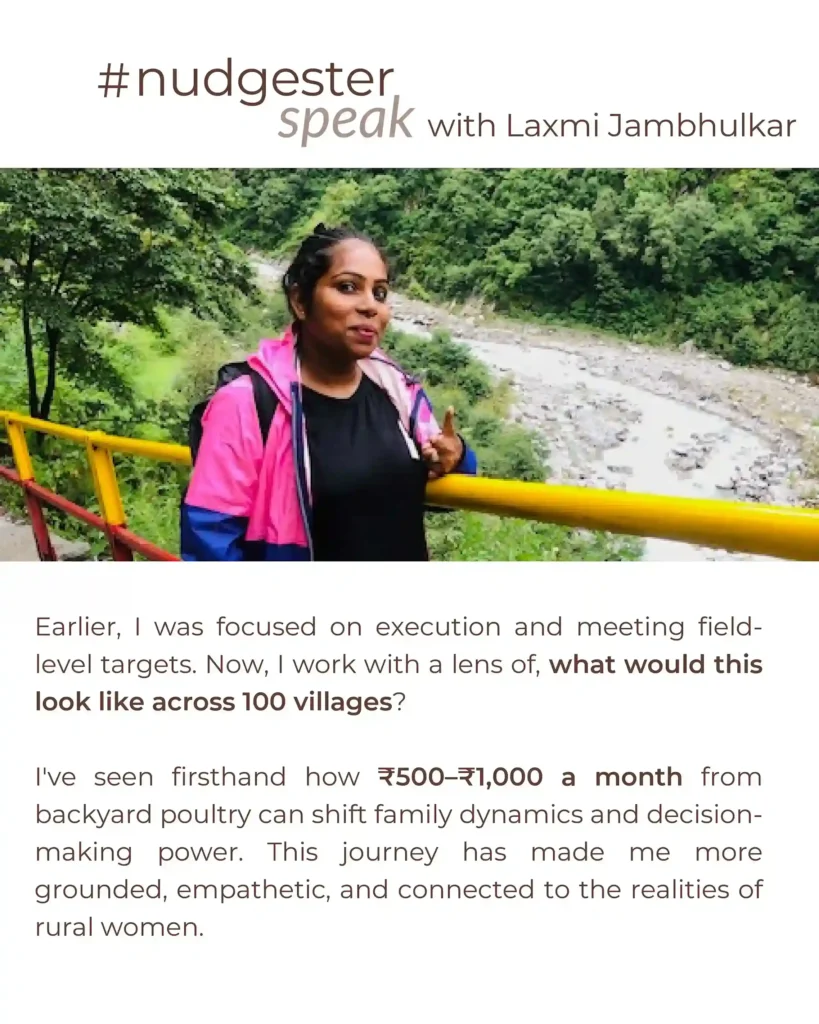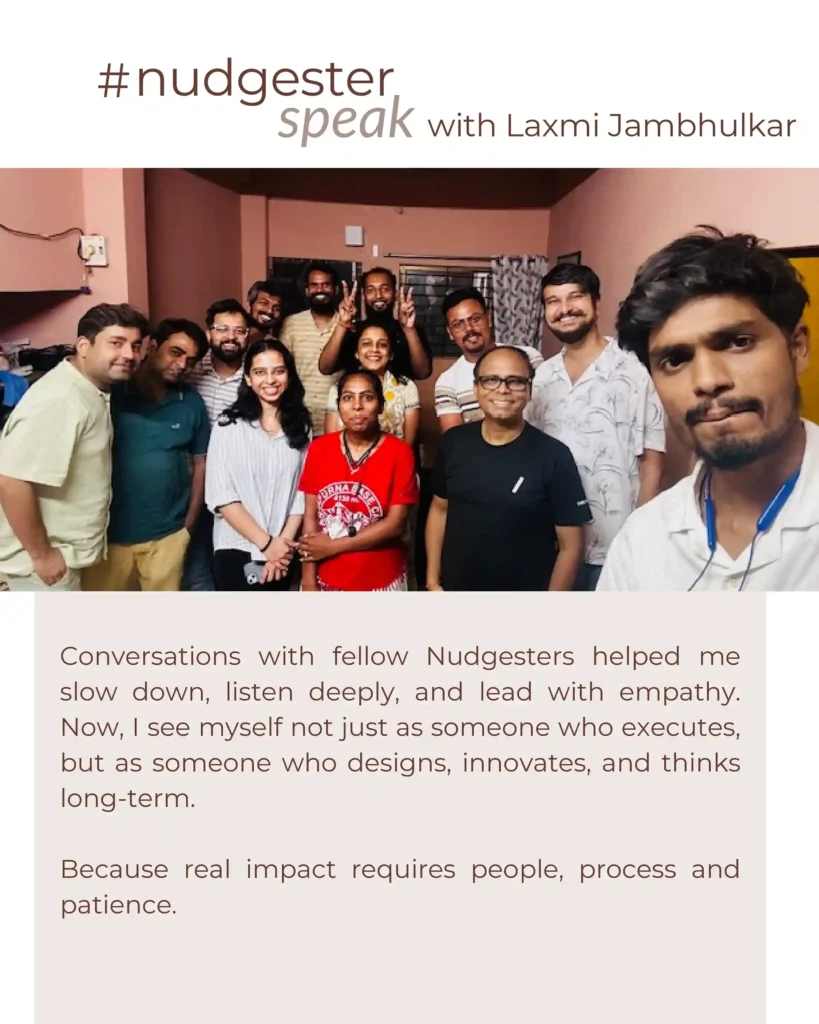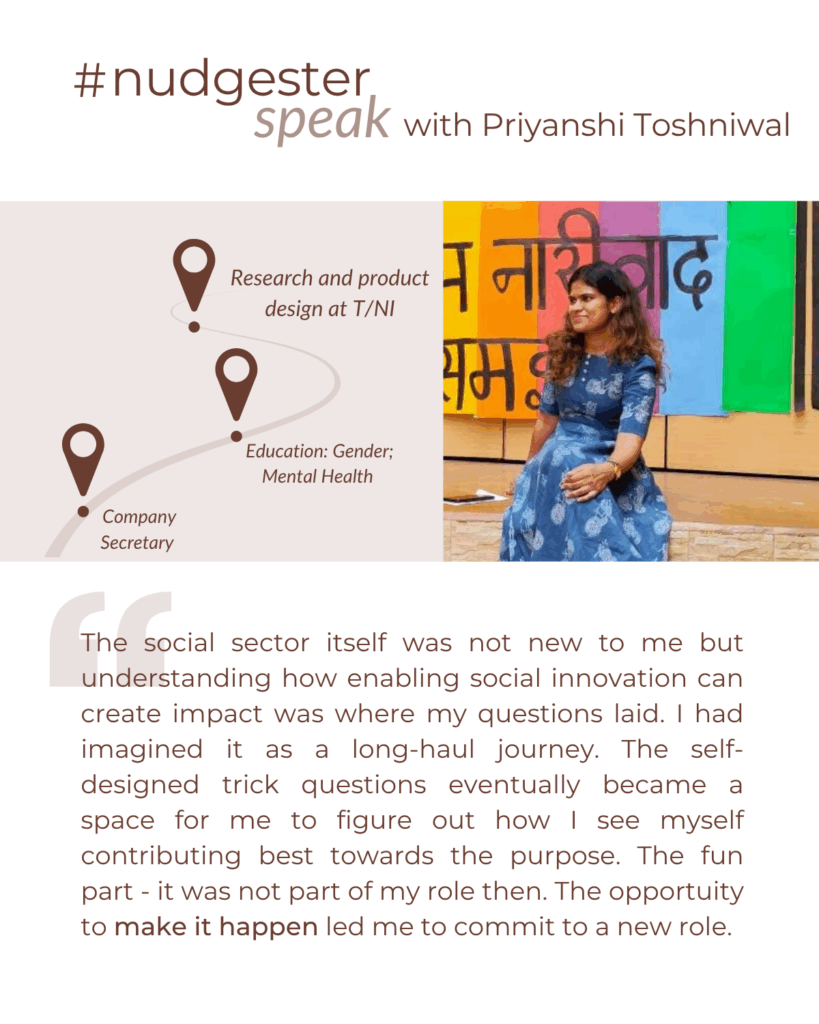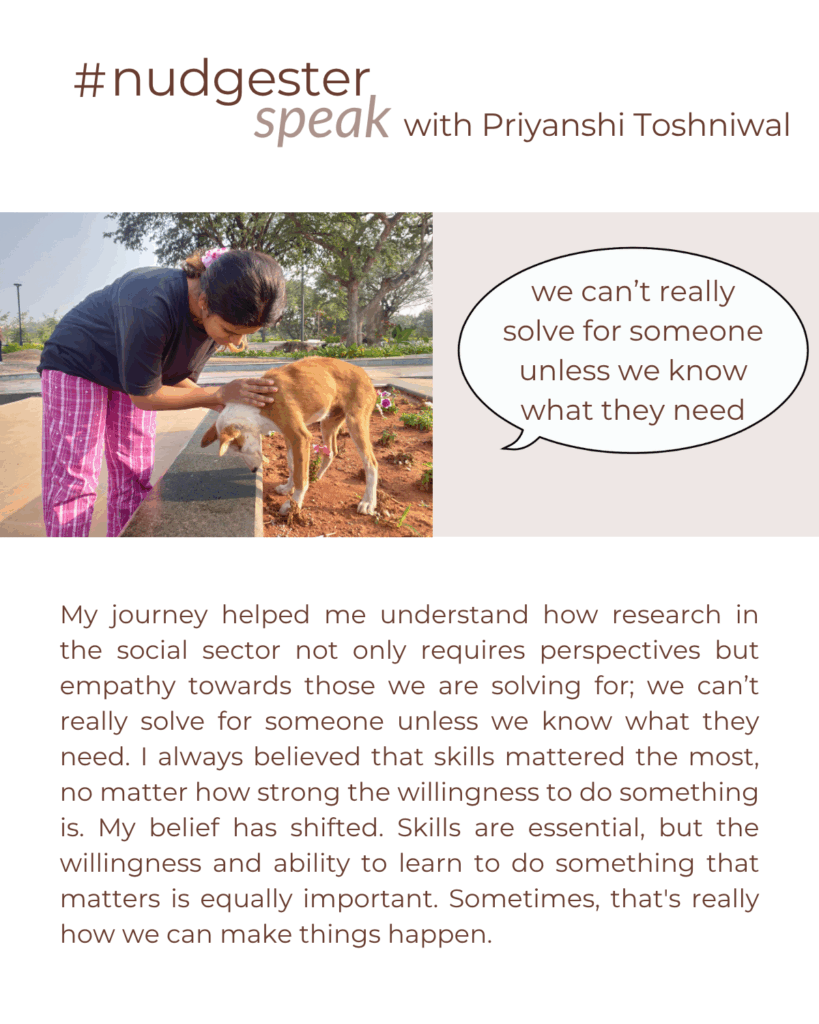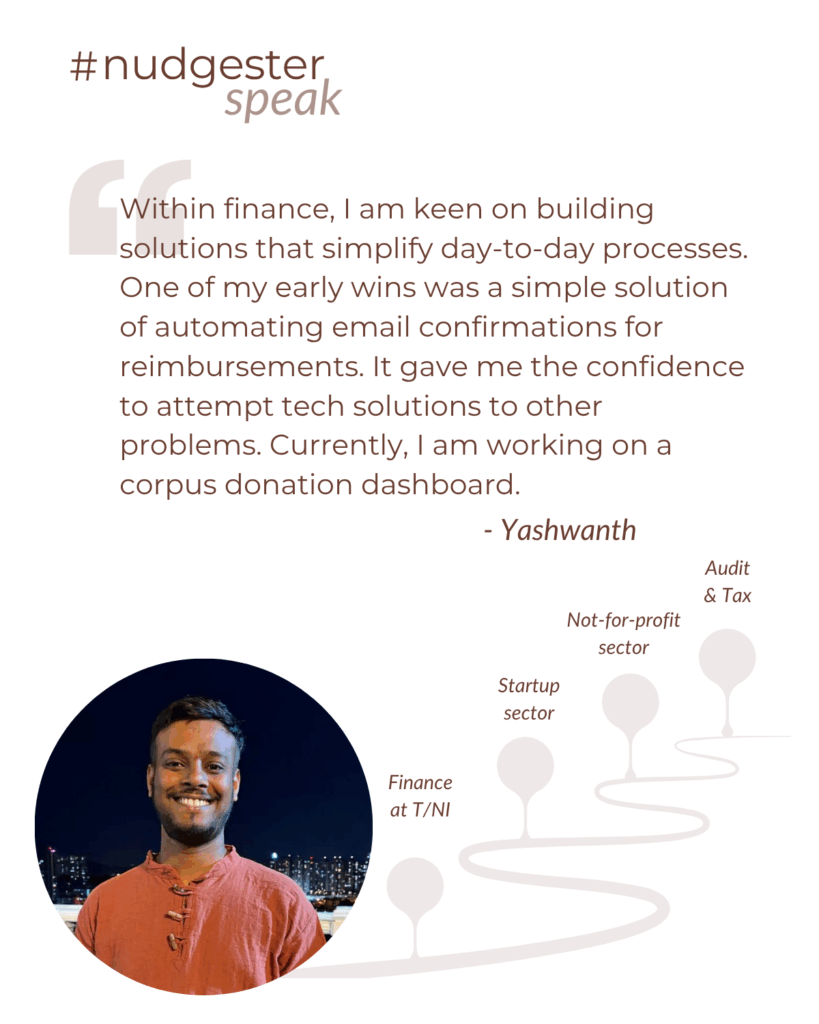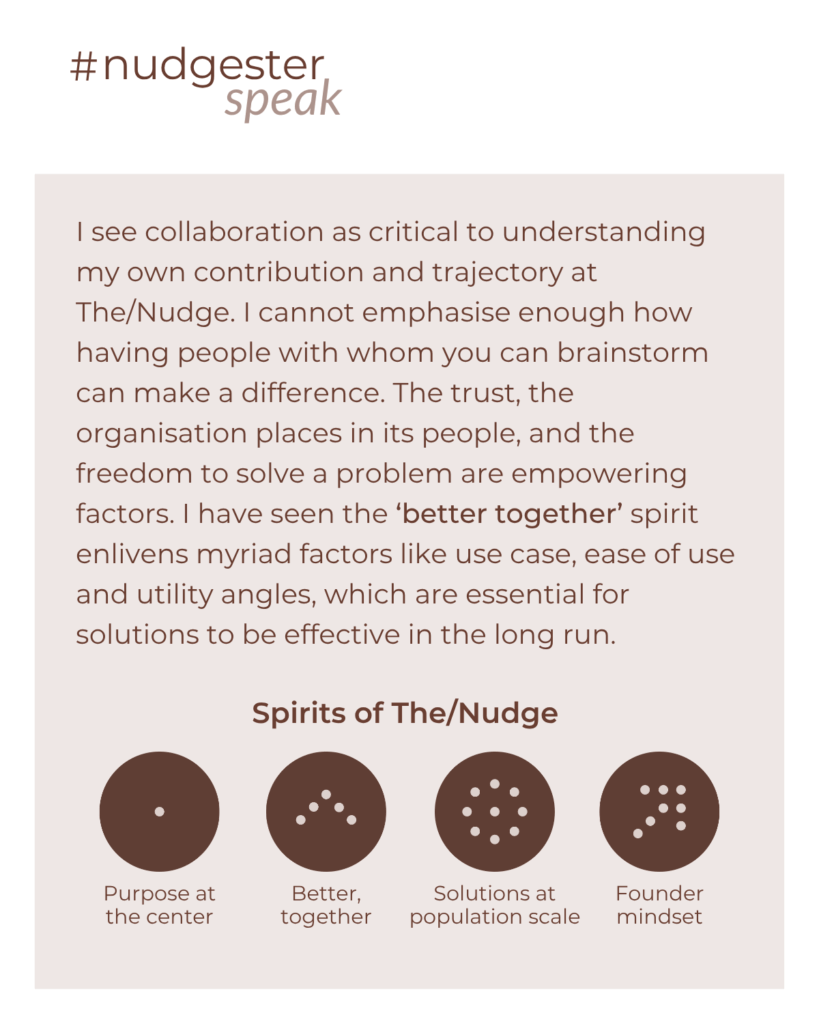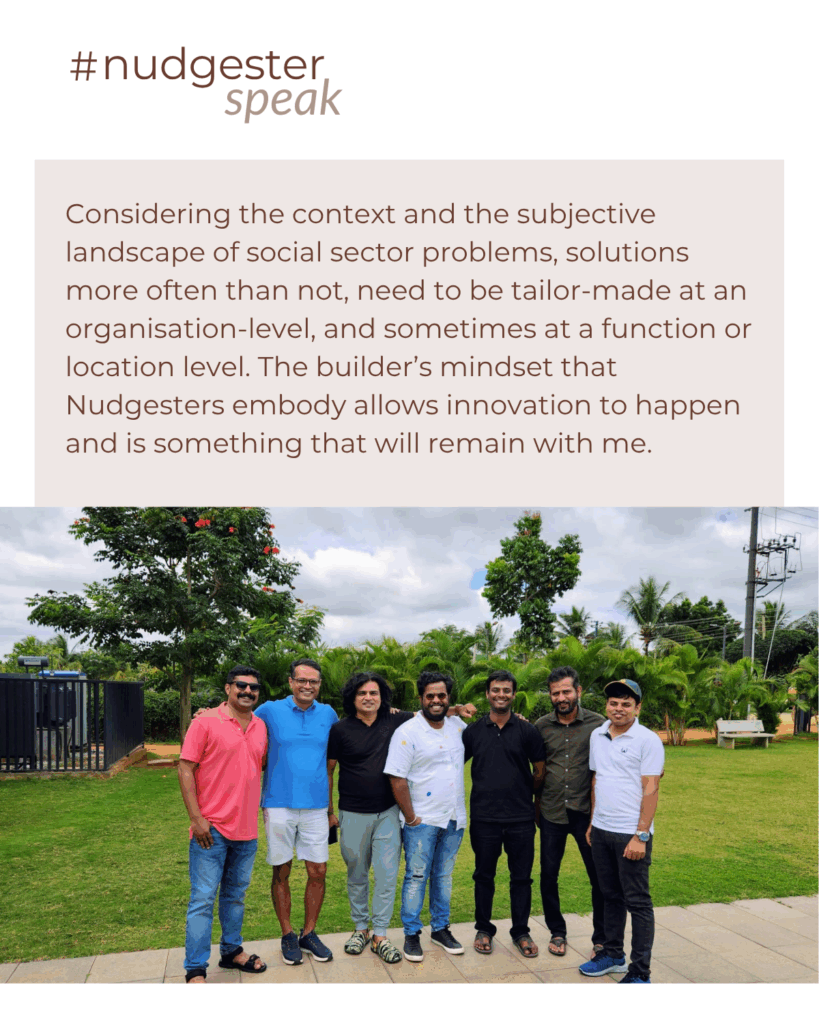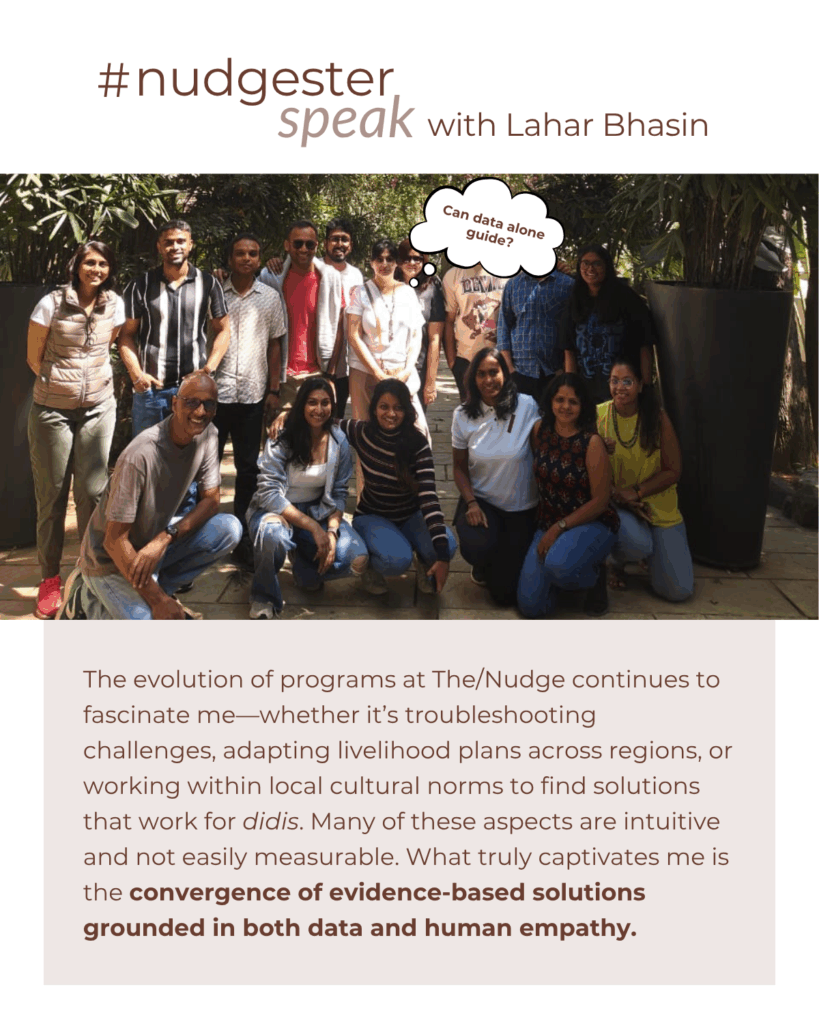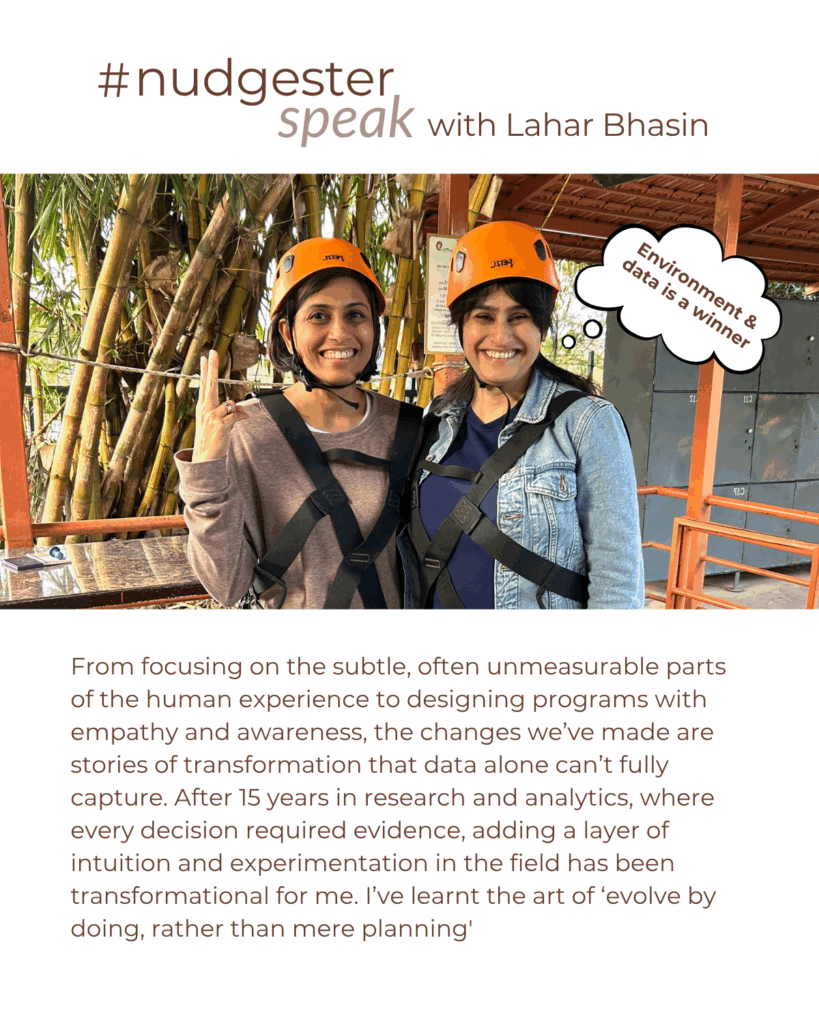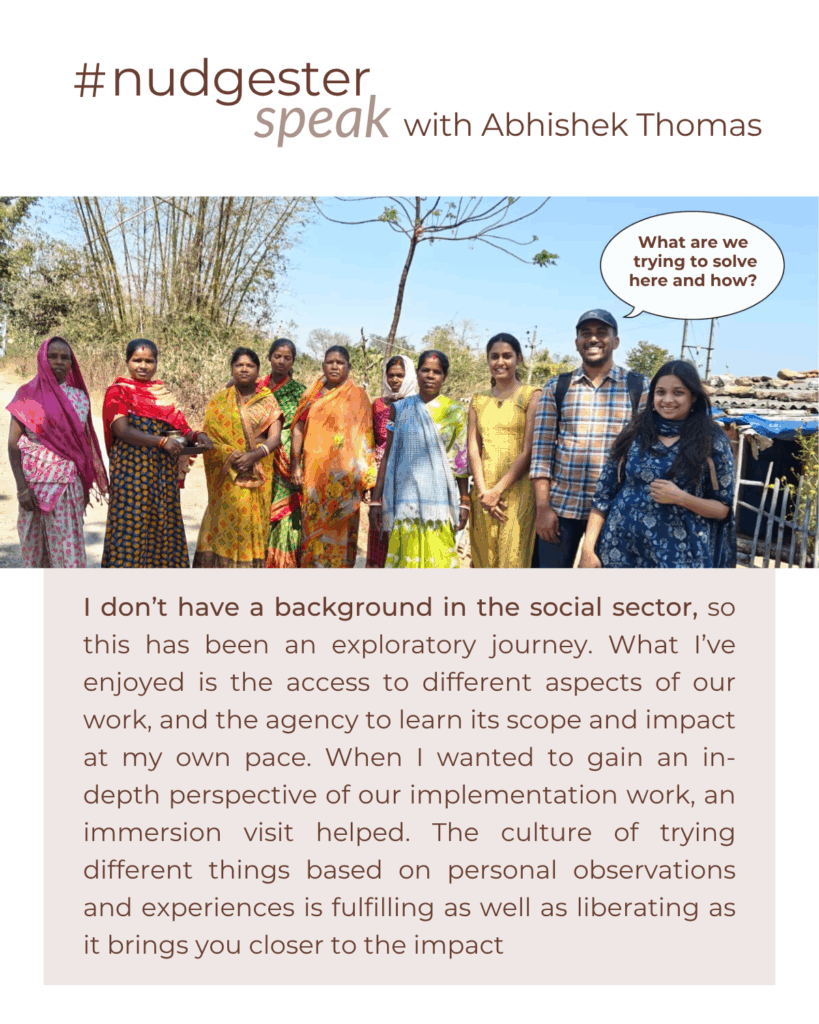Exclusion is multi-dimensional and manifests in various forms—one of which is determining who bears the greatest impact of human-animal conflict. Adivasi (tribal) communities have coexisted peacefully with animals in forested areas for centuries. However, increasing deforestation has disrupted this balance, affecting both communities and wildlife. Tribal populations have lost their livelihoods, while animals have lost their habitats.
The loss of habitat has led to a rise in elephant attacks on communities living on the forest fringes. Every year, approximately 500 people and 100 elephants are killed in India due to such conflicts. The Economic Inclusion Program (EIP) works with vulnerable communities in West Bengal and Assam that are particularly affected by these attacks.
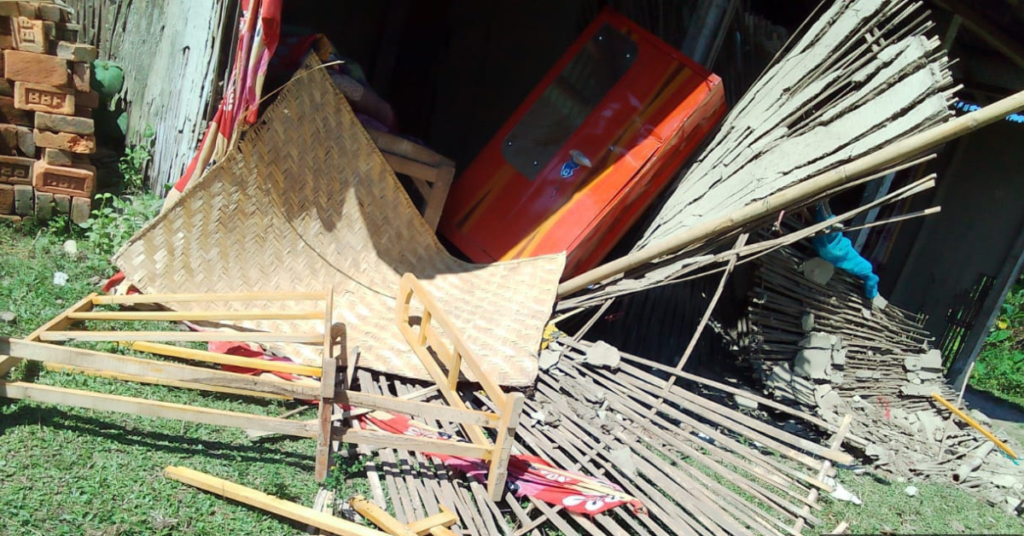
In West Bengal, we collaborate with the Sabar and Lodha communities, classified as a Particularly Vulnerable Tribal Group (PVTG), through Anandadhara (WBSRLM). In Jhargram block, elephant attacks result in two to three deaths or injuries daily. One of our program participants, Rebati Nayak Didi from Lodhasuli Gram Panchayat, tragically lost her entire family—her husband, son, and daughter—to such an attack. Many of our Didis are the sole earners in their families, with no assets such as land or livestock and no stable income sources. They rely on non-timber forest produce or uncertain daily wage labour for survival.
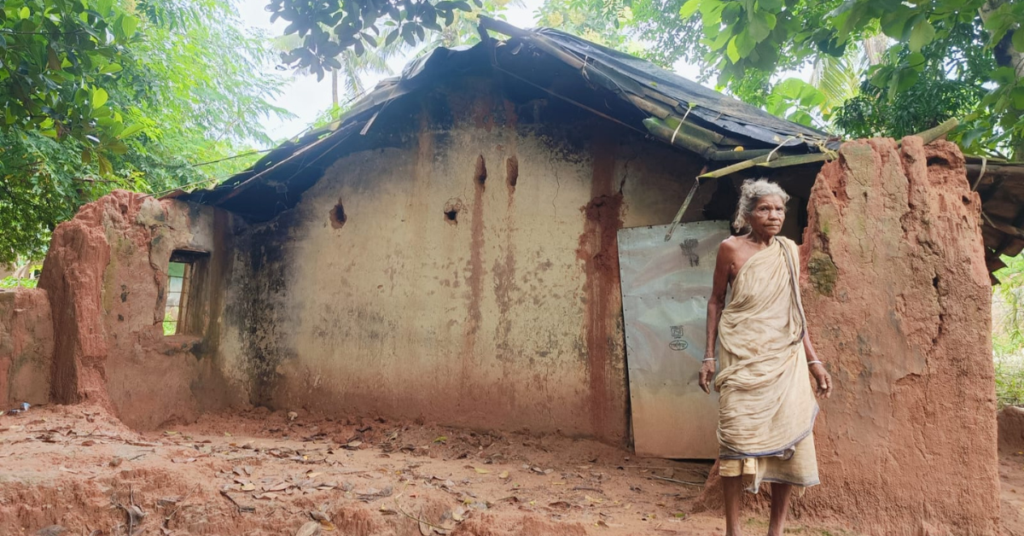
A couple of months ago, in Assam’s Aie Puali Village, Sidli Chirang Block, Romita Baideu Didi’s house was attacked by elephants while she was having evening tea with her husband, a daily wage earner, while their two children were asleep inside. Beramaya Baideu, another program participant, is over 50 years old and lives alone in a half-built kutcha house. That evening, when she heard cries from Romita Didi’s home, she was about to run over to check when she saw a herd of elephants approaching. She recalls, “Had the elephants attacked my place that night, I don’t know how I would have survived.”
Thankfully, Romita Didi and her family escaped the elephant attack unharmed, but they lost their home in the process. With support from community institutions and their neighbour, Beramaya Didi, they moved into a makeshift shelter.
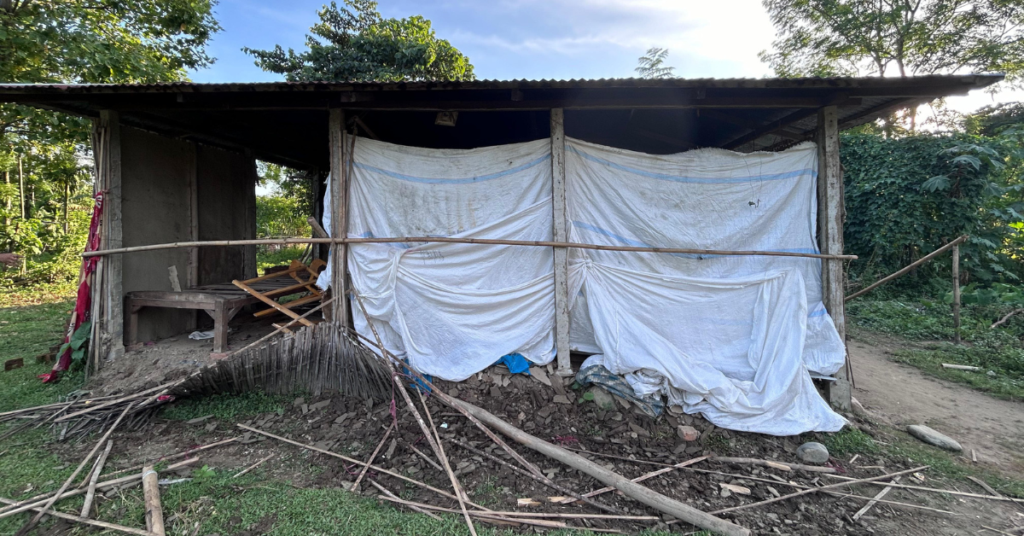
Beramaya Didi, used to frequently cross into Bhutan to work as a helper in a vegetable market, despite lacking a government ID, making her journey risky. On days she cannot travel, she used to earn just INR. 50 as a domestic worker in a neighbouring village. When work is scarce, she simply drinks water and tries to sleep. Despite her own struggles, she remains a pillar of support for her community in times of hardship.
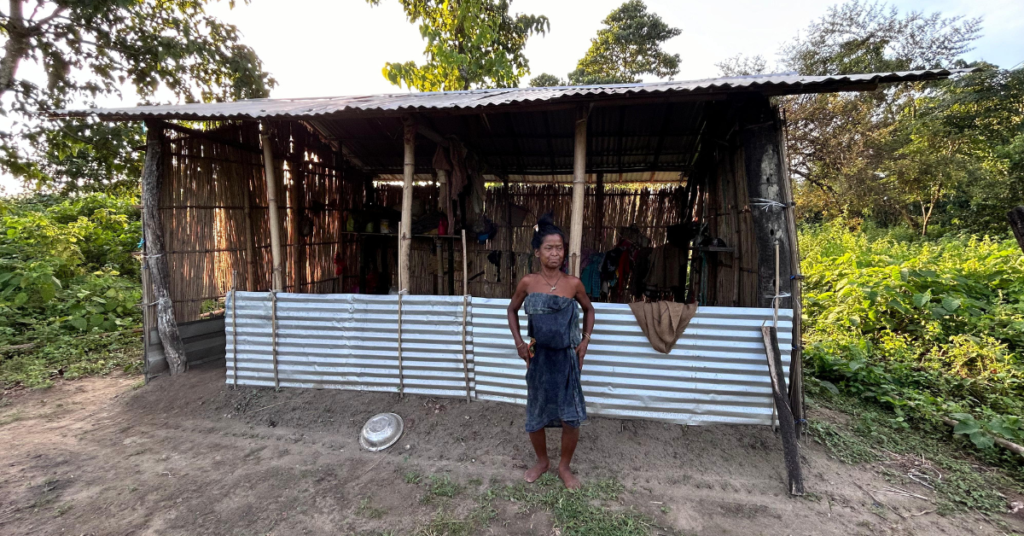
Despite these hardships, our Didis look forward to the visits from the SETU Sarathi and the weekly Small Group Meetings (SGMs). After the elephant attack, when our changemaker, Fulmaya Suthradhar, visited Romita and Beramaya Didis, their eyes lit up with eagerness to share their experiences. Beramaya Didi expressed, “We have many bitter days, but we wait for Fulmaya, who’s now like my daughter. Sharing all our struggles with her makes those bitter days feel sweeter.”
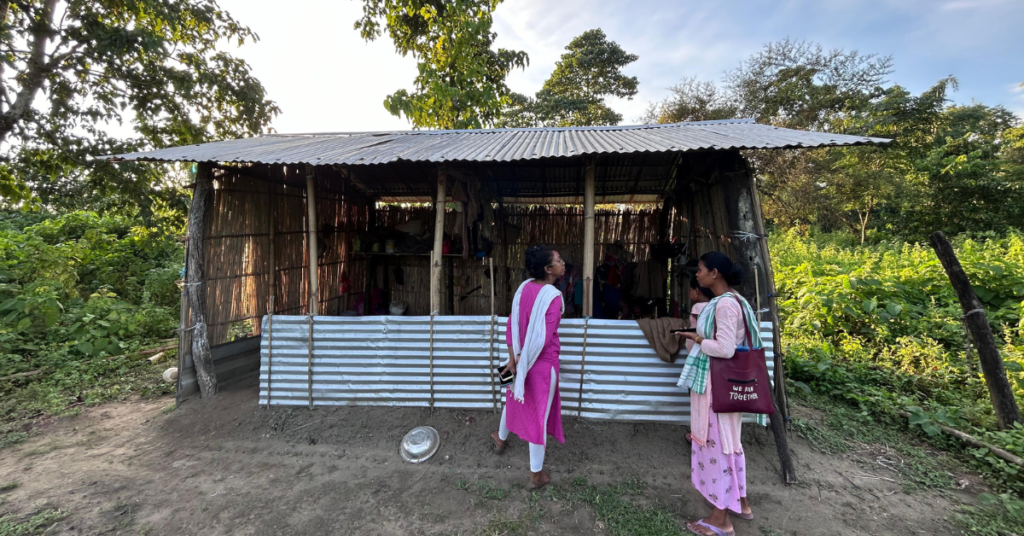
This story, however, has a hopeful ending—one that highlights the power of community-led action and resilience. A week after learning about Romita Baideu’s loss, the local women’s collective and the Assam State Rural Livelihood Mission (ASRLM), took complete responsibility for rebuilding her home. The representatives including office bearers, the village council, and SETU Sarathi Didi were actively involved in the process.
They procured the necessary materials, hired two labourers from the local village—who, knowing the representatives, offered their services at a lower cost—and oversaw the rebuilding process. The reconstruction took an entire day, and all representatives and cadres remained present until Romita Baideu’s home was fully rebuilt.
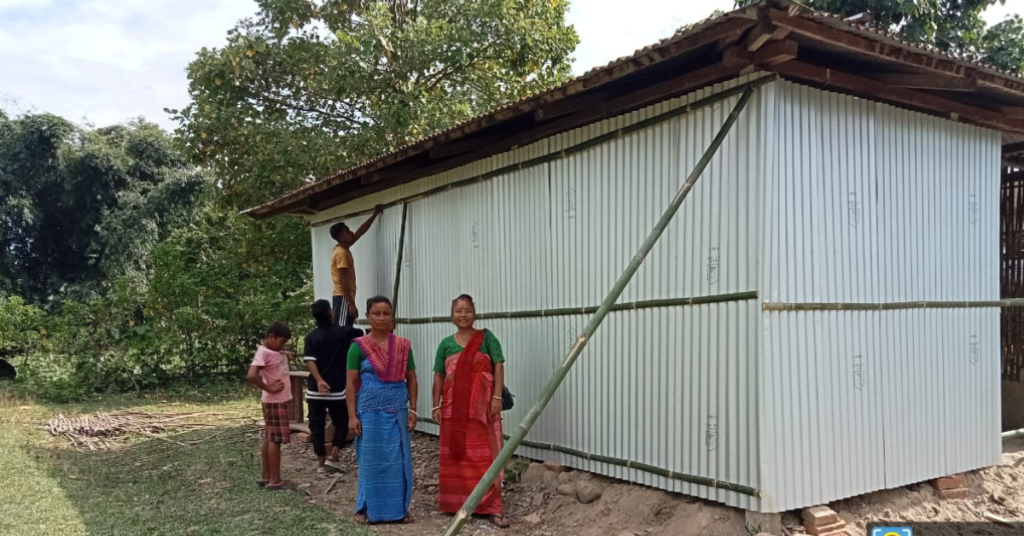
This is what everyday heroism and solidarity look like—communities standing together to rebuild not just homes, but lives. Through the Economic Inclusion Program (EIP), vulnerable women like Romita and Beramaya Didis find not only financial opportunities but also a strong support system that helps them navigate crises, proving that resilience and collective action can triumph even in the face of exclusion and adversity.

